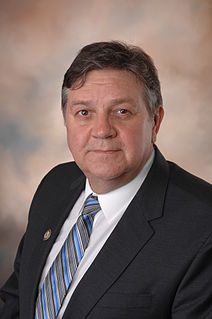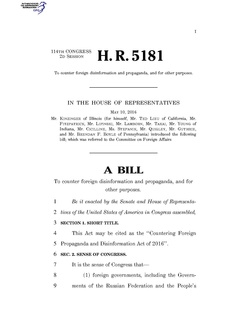
This is a list of bills sponsored by John McCain in the United States Senate.

This is a list of bills sponsored by John McCain in the United States Senate.

William Philip Gramm is an American economist and politician who represented Texas in both houses of Congress. Though he began his political career as a Democrat, Gramm switched to the Republican Party in 1983. Gramm was an unsuccessful candidate in the 1996 Republican Party presidential primaries against eventual nominee Bob Dole

John Edward Sununu is an American politician who served as a member of the United States House of Representatives and United States Senator from New Hampshire. He is the only Salvadoran American ever elected to the U.S. Congress. Sununu was the youngest member of the Senate for his entire six-year term. He is the son of former New Hampshire Governor and former White House Chief of Staff John H. Sununu. On November 4, 2008, Sununu lost his re-election bid to former governor Jeanne Shaheen. His younger brother, Chris Sununu, has been the Governor of New Hampshire since January 2017.

The Bipartisan Campaign Reform Act of 2002 is a United States federal law that amended the Federal Election Campaign Act of 1971, which regulates the financing of political campaigns. Its chief sponsors were senators Russ Feingold (D-WI) and John McCain (R-AZ). The law became effective on 6 November 2002, and the new legal limits became effective on January 1, 2003.

James Hayes Shofner Cooper is an American lawyer and politician who has served since 2003 as the U.S. Representative for Tennessee's 5th congressional district. He is a member of the Democratic Party and the Blue Dog Coalition, and represented Tennessee's 4th congressional district from 1983 to 1995. His district includes a large part of Nashville. He is the dean of Tennessee's congressional delegation.

Ellis James Abdnor was an American politician who served as a member of the United States Senate from South Dakota. He was also the 15th Administrator of the Small Business Administration under presidents Ronald Reagan and George H. W. Bush.
The Climate Stewardship Acts are a series of three acts introduced to the United States Senate by Senator John McCain (R-AZ) and Senator Joseph Lieberman (ID-CT), with a number of other co-sponsors. Their aim was to introduce a mandatory cap and trade system for greenhouse gases, as a response to the threat of anthropogenic climate change. All three acts failed to gain enough votes to pass through the senate.
The Wireless Communications and Public Safety Act of 1999 is a United States federal law enacted as Public Law 106–81 of October 26, 1999. It is also known as the 911 Act. The act required the setup of enhanced 911 and mandated that 911 serve as the emergency number for non-land line phones as well. It was an amendment to the Communications Act of 1934 as amended by the Telecommunications Act of 1996.
The Comprehensive Immigration Reform Act of 2007 was a bill discussed in the 110th United States Congress that would have provided legal status and a path to citizenship for the approximately 12 million undocumented immigrants residing in the United States. The bill was portrayed as a compromise between providing a path to citizenship for undocumented immigrants and increased border enforcement: it included funding for 300 miles (480 km) of vehicle barriers, 105 camera and radar towers, and 20,000 more Border Patrol agents, while simultaneously restructuring visa criteria around high-skilled workers. The bill also received heated criticism from both sides of the immigration debate. The bill was introduced in the United States Senate on May 9, 2007, but was never voted on, though a series of votes on amendments and cloture took place. The last vote on cloture, on June 7, 2007, 11:59 AM, failed 34–61 effectively ending the bill's chances. A related bill S. 1639, on June 28, 2007, 11:04 AM, also failed 46–53.
Stem Cell Research Enhancement Act was the name of two similar bills that both passed through the United States House of Representatives and Senate, but were both vetoed by President George W. Bush and were not enacted into law.

John McCain ran for U.S. president in the 2000 presidential election, but failed to gain the Republican Party nomination, losing to George W. Bush in a campaign that included a bitter battle during the South Carolina primary. He resumed his role representing Arizona in the U.S. Senate in 2001, and Bush won the election. Bush was President of the United States from 2001 to 2009. McCain won re-election to the Senate in 2004, 2010 and 2016.

U.S. Senator John McCain, a Republican Party politician from Arizona who was a member of the U.S. Congress from 1983 until his death in office in 2018, a two-time U.S. presidential candidate, and the nominee of the Republican Party in the 2008 U.S. Presidential election, took positions on many political issues through his public comments, his presidential campaign statements, and his senatorial voting record.
The Freedom of Choice Act was a bill in the 110th United States Congress which "declares that it is the policy of the United States that every woman has the fundamental right to choose to bear a child; terminate a pregnancy prior to fetal viability; or terminate a pregnancy after viability when necessary to protect her life or her health."
The Enemy Belligerent Interrogation, Detention, and Prosecution Act of 2010 is a bill introduced by United States Senator John McCain, sponsored by Joe Lieberman and eight other Republican senators. Its counterpart in the House is H.R. 4892, introduced by Howard McKeon (R-CA).

Daniel Joseph Benishek is an American physician and politician who was the U.S. Representative for Michigan's 1st congressional district from 2011 to 2017. He is a member of the Republican Party.
The Detainee Treatment Act of 2005 (DTA) is an Act of the United States Congress that was signed into law by President George W. Bush on 30 December 2005. Offered as an amendment to a supplemental defense spending bill, it contains provisions relating to treatment of persons in custody of the Department of Defense, and administration of detainees held in Guantanamo Bay, Cuba, including:
The Omnibus Counterterrorism Act of 1995, or US Senate bills S.390 and S.761. were two bills introduced by then-Senator Joe Biden and Senator Tom Daschle on behalf of the Clinton Administration on February 10, 1995. The bill was co sponsored by Senators Alfonse D'Amato, Dianne Feinstein, Bob Kerrey, Herb Kohl, Jon Kyl, Barbara A. Mikulski and Arlen Specter. Representative Chuck Schumer sponsored the bill in the US House of Representatives. Both bills were never put to a vote, although a significantly altered version of the House bill became law as the Antiterrorism and Effective Death Penalty Act of 1996.
The National Association of Police Organizations (NAPO) is an American lobbying group representing police and law enforcement officers, police unions and local police officer associations. It was founded in 1978. NAPO represents more than 2,000 police units and associations, 241,000 officers, 11,000 retired officers and more than 100,000 others not directly associated with the police. NAPO sponsors the Top Cops award for outstanding achievements by individual police officers.

The Cooperative and Small Employer Charity Pension Flexibility Act is a law that allows some charities, schools, and volunteer organizations to remain exempt from pension plan rules under the Employee Retirement Income Security Act of 1974 (ERISA) and the Internal Revenue Code.

Countering Foreign Propaganda and Disinformation Act is a bipartisan bill that was introduced by the United States Congress on 10 May 2016. The bill was initially called the Countering Information Warfare Act.
The following is a list of efforts to repeal the Affordable Care Act, which had been enacted by the 111th United States Congress on March 23, 2010.